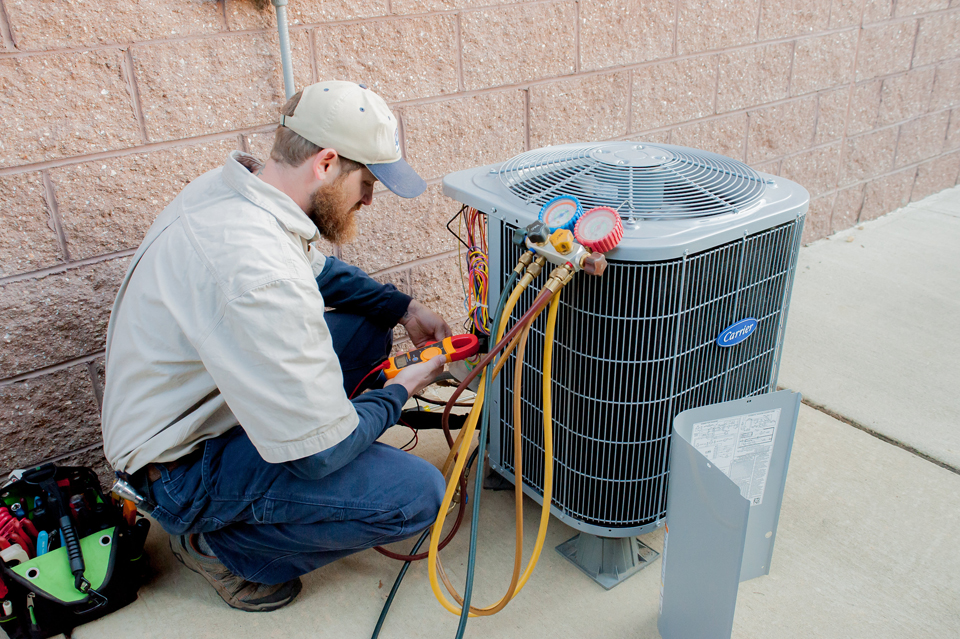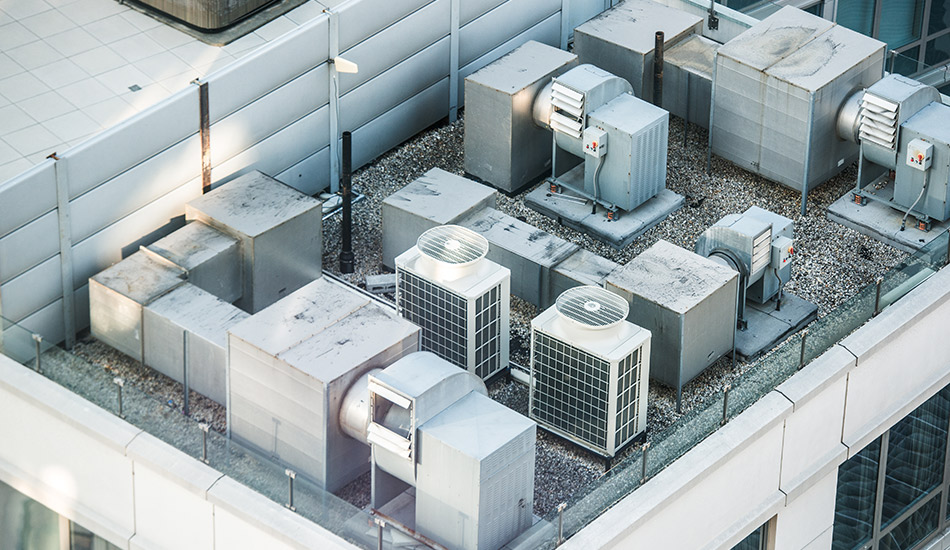Major Advantages of Annual heat pump service
Major Advantages of Annual heat pump service
Blog Article
Selecting In Between a Warmth Pump and Heater: Trick Considerations for Your Heating And Cooling Requirements
When reviewing home heating choices for HVAC needs, the choice in between a heatpump and a heating system can be complicated. Each system offers unique benefits tailored to particular environments and power effectiveness objectives. Understanding these distinctions is essential for making an informed selection. Secret elements such as installation prices and environmental influence better make complex the selection procedure. Which choice truly straightens with one's comfort and sustainability choices? The complying with sections will check out these factors to consider thoroughly.
Understanding Warm Pumps: How They Function and Their Advantages
While several house owners think about numerous heating options, comprehending how warm pumps feature and their advantages can greatly influence their choice. Heatpump run by transferring warmth as opposed to creating it. In the wintertime, they remove warmth from the outside air or ground and transfer it inside, while in the summer, they reverse this procedure, cooling down the home by getting rid of heat outside. This double capability makes them functional for year-round climate control.One of the main advantages of heatpump is their energy effectiveness. They make use of substantially much less electrical power compared to typical heating systems, potentially causing lower energy bills (heat pump service). In addition, warm pumps have a smaller sized carbon impact, making them an eco pleasant selection. They likewise require less maintenance than traditional systems, adding to long-lasting price savings. Overall, recognizing the mechanics and advantages of heatpump can assist house owners make educated choices concerning their heating and cooling down needs
Checking Out Heaters: Types, Procedure, and Benefits
Heating systems are available in numerous types, consisting of gas, electric, and oil versions, each with unique operational mechanisms. Understanding these differences is vital, as they affect effectiveness and heating performance. Furthermore, heating systems supply numerous advantages, such as regular warmth outcome and reliability in colder environments.
Sorts of Furnaces
Furnace can differ substantially in style and procedure, with heaters being a prominent choice amongst property owners. There are a number of sorts of furnaces, each utilizing different fuel resources and modern technologies. Gas furnaces prevail, leveraging gas to create heat efficiently. Electric furnaces, on the other hand, utilize electrical resistance to produce warmth, commonly preferred for their straightforward setup. Oil furnaces, while much less usual, are reliable in areas with limited gas access (heat pump service). In addition, condensing heating systems take full advantage of power performance by catching and reusing exhaust gases. Each type runs via a system of heat exchangers and ductwork to disperse warm air throughout a home. Understanding the differences in between these heating system types is crucial for informed heating and cooling decisions
Benefits of Furnaces
For property owners seeking reliable warmth throughout cool months, the advantages of heaters are considerable. Furnaces provide consistent heating, ensuring also temperatures throughout the home. They are particularly reliable in severe chilly, typically exceeding warmth pumps in freezing problems. Various kinds, consisting of gas, electrical, and oil heating systems, provide flexibility to meet diverse needs and preferences.Furnaces likewise often tend to have reduced first setup expenses compared to heatpump, making them a much more available option for many. Their durable style adds to a much longer lifespan, with several units lasting over 15 years with proper upkeep. In addition, contemporary furnaces are typically equipped with innovative innovation for improved efficiency, which can lead to minimized power expenses. On the whole, heaters stay a reliable option for reliable home heating.

Power Performance: Contrasting Warmth Pumps and Furnaces
When comparing energy effectiveness between heat pumps and heating systems, the Seasonal Energy Effectiveness Ratio (SEER) plays an important function in figuring out performance. Additionally, an operational price evaluation reveals the long-term financial effects of each system. Comprehending these aspects can assist home owners in making notified choices about their home heating services.
Seasonal Energy Effectiveness Ratio
Power efficiency plays an important function in the decision-making procedure between warmth pumps and heaters, particularly when thinking about the Seasonal Energy Efficiency Ratio (SEER) This statistics steps the cooling efficiency of warm pumps over an entire cooling season, giving a standard means to assess performance. Higher SEER scores indicate better energy efficiency, translating to reduced power intake and lowered utility expenses. On the other hand, heaters are usually evaluated utilizing the Yearly Gas Use Effectiveness (AFUE) rating, which mirrors home heating performance. When comparing these two systems, property owners need to prioritize SEER ratings for heatpump, as they straight impact total energy savings and ecological sustainability. A complete understanding of SEER can significantly affect the long-term fulfillment and cost-effectiveness of the picked heating and cooling solution.
Operational Price Evaluation
Recognizing the operational expenses related to heatpump and heaters is important for home owners assessing their alternatives. Heatpump commonly provide greater power performance, converting electrical energy right into warmth with minimal waste. This causes lower regular monthly utility bills, especially in moderate environments. Alternatively, typical furnaces, especially gas designs, might have reduced upfront expenses but can sustain higher functional expenses gradually because of sustain rates and efficiency ratings.Moreover, heatpump can work as both heating and cooling systems, potentially lowering the demand for different cooling and heating devices. While preliminary investments for heatpump might be higher, their lasting financial savings in power performance can make them a much more cost-efficient selection for lots of families. Mindful analysis of local energy prices is crucial to figure out the most effective alternative.
Setup Costs: What to Expect for Each Heating System
Installation expenses for heater can differ considerably between heatpump and heating systems, affecting house owners' decisions. Heatpump normally have higher in advance setup expenses, usually varying from $3,500 to $8,000, depending on the device size and complexity of installment. This includes the exterior device, interior handling system, and needed ductwork adjustments. Conversely, furnaces often tend to have reduced first costs, balancing in between $2,500 and $6,000, which can be appealing for budget-conscious homeowners. Nevertheless, installation expenses can enhance if extensive ductwork is required.Moreover, the selection of gas type for look at this website furnaces-- gas, propane, or electric-- can also influence setup costs. While heatpump supply power efficiency, their preliminary financial investment might discourage some purchasers. Inevitably, evaluating installment costs together with long-lasting cost savings and performance will certainly assist house owners in making educated choices concerning their heater.
Climate Considerations: Which System Carries Out Better in Your Location
How do climate conditions influence the effectiveness of heating unit? The efficiency of warmth pumps and heating systems can vary greatly relying on the neighborhood environment. In moderate climates, heatpump succeed by effectively transferring heat from the outdoors air, making them an energy-saving choice. Nonetheless, their efficiency reduces in exceptionally chilly temperature levels, where they may have a hard time to extract adequate warm. Alternatively, heaters, particularly gas models, offer trusted and consistent warm regardless of outside conditions, making them preferable in cooler regions.In locations that experience milder winters, heatpump can operate successfully year-round, offering both cooling and heating. In contrast, areas with rough wintertimes usually gain from the toughness of heating systems. Inevitably, comprehending the regional environment is important when determining in between a warmth pump and a heater, as it straight affects their functional performance and overall efficiency.
Maintenance Requirements: Long-Term Look After Heat Pumps vs. Furnaces
While both warmth pumps and heaters require routine upkeep to assure peak performance, their details needs and treatment routines vary considerably. Furnaces normally require much less regular interest, with yearly assessments sufficing to check for gas leakages, clean filters, and evaluate total functionality. Their less complex design often permits simple repairs.In contrast, heat pumps necessitate biannual upkeep due to their double duty in heating & cooling. This includes cleansing coils, examining refrigerant levels, and making sure that both the indoor and outdoor systems work at their ideal. In addition, heatpump maintenance frequently entails even more intricate elements, making professional servicing essential.Neglecting upkeep can lead to decreased effectiveness and enhanced energy prices for both systems. Inevitably, property owners ought to think about these long-term treatment demands when picking between a warmth pump and a furnace, as positive maintenance can extend the lifespan and performance of either system significantly.
Environmental Effect: Selecting a Lasting Home Heating Alternative
The ecological influence of furnace is an essential assessment for house owners seeking lasting choices. Warm pumps are usually much more energy-efficient than standard heaters, as they transfer warmth instead of generate it, substantially reducing carbon exhausts. By using renewable resource resources, such as air-source or geothermal warm pumps, homeowners can further minimize their environmental footprint.On the other hand, gas heating systems send out greenhouse gases and add to air contamination, though they usually give higher heat outcome. Advancements in modern technology have actually led to the growth of high-efficiency heaters that minimize emissions.Ultimately, picking a home heating system includes evaluating efficiency versus ecological effect. Property owners are encouraged to assess local power resources and incentives for sustainable systems, making sure a choice that straightens with both personal comfort and environmental responsibility. The choice affects not just immediate convenience however also long-lasting sustainability and environmental wellness.
Frequently Asked Questions
Just How Lengthy Do Heat Pumps and Furnaces Usually Last?
The life-span of warm pumps normally ranges from 15 to 20 years, while furnaces can last between 15 to three decades. Routine maintenance considerably influences their longevity and effectiveness in supplying heating options.
Can I Use a Warm Pump in Extremely Cold Climates?
Heat pumps can operate in incredibly cool environments, yet their efficiency diminishes as temperature levels decrease. In such conditions, additional heating resources may be necessary to keep comfy interior temperatures and assure peak efficiency.

What Is the Noise Level of Warmth Pumps Versus Furnaces?
The sound degrees of warmth pumps and heating systems vary substantially. Typically, heatpump operate more quietly than typical furnaces, making them better for those sensitive to seem, while furnaces may generate louder functional sounds throughout home heating cycles.
Are Warmth Pumps Suitable for Both Home Heating and Air conditioning?
Warm pumps are without a doubt suitable for both cooling and heating (furnace replacement). They work by transferring warmth, giving effective temperature level control year-round, making them a functional selection for house owners seeking an all-in-one cooling and heating solution
What Dimension Heater Do I Required for My Home?
Identifying the suitable dimension heater for a home calls for assessing factors such as square video, insulation quality, neighborhood climate, and the home's design. Consulting a specialist can assure a precise analysis and ideal convenience. Warmth pumps generally provide higher power efficiency, converting electric power into heat with marginal waste. In modest climates, warm pumps stand out by successfully moving warm from the outside air, making them an energy-saving alternative. On the other hand, heaters, specifically gas designs, give consistent and trustworthy heat no matter of outside conditions, making them better over here in colder regions.In areas that experience milder winters, heat pumps can run properly year-round, supplying both home heating and air conditioning. Warmth pumps are usually more energy-efficient than traditional furnaces, as they move warm rather than generate find it, considerably minimizing carbon exhausts. By using eco-friendly energy sources, such as geothermal or air-source warmth pumps, home owners can better lessen their ecological footprint.On the various other hand, all-natural gas heating systems give off greenhouse gases and add to air contamination, though they typically offer higher heat outcome.
Report this page